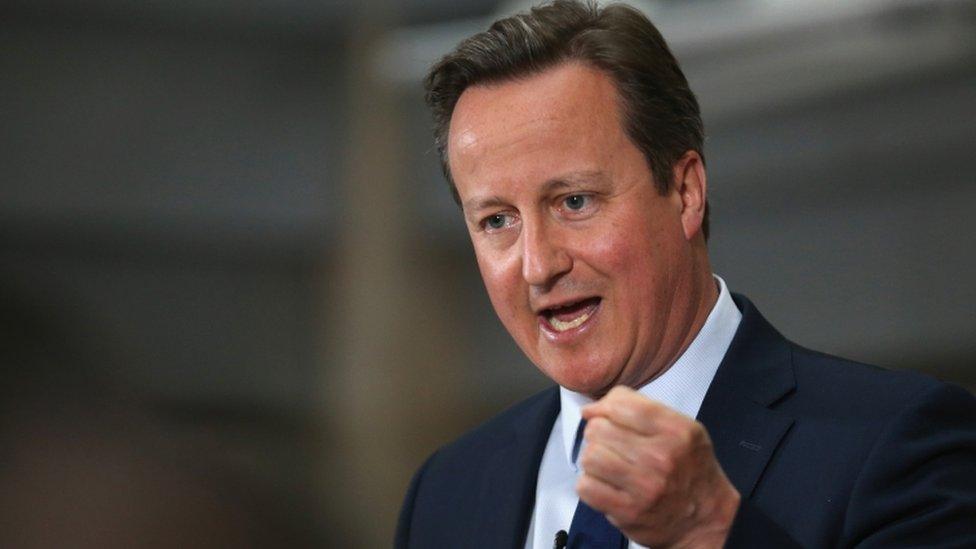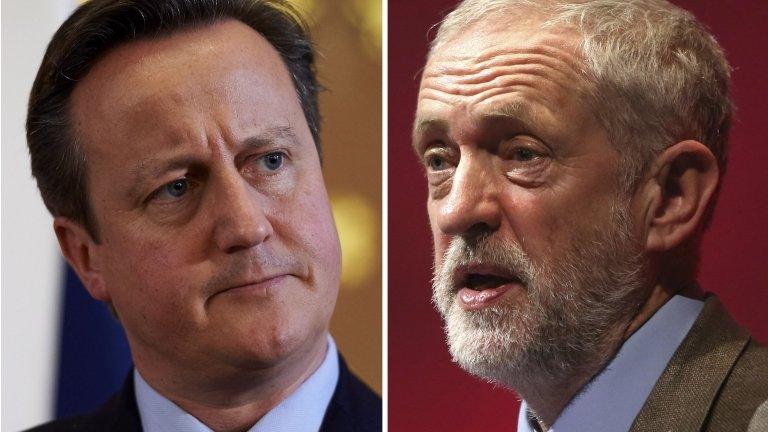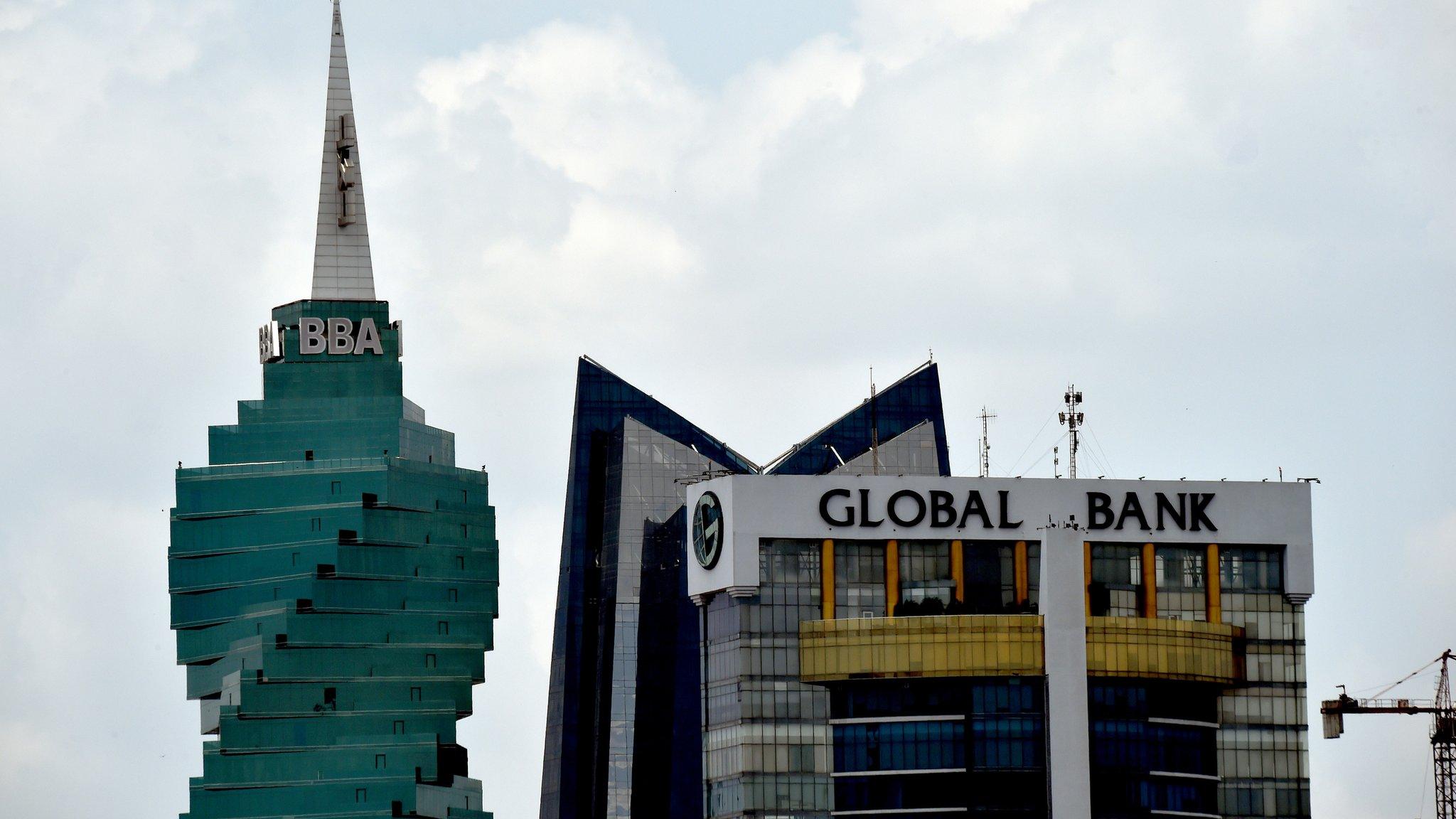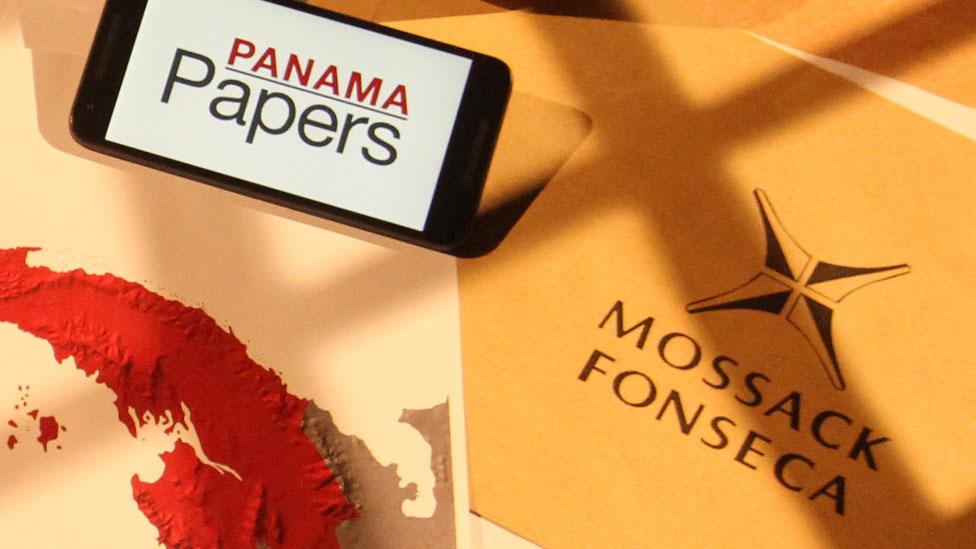Panama Papers: Cameron faces questions over trust letter
- Published

Mr Cameron has insisted no prime minister or UK government has done more to tackle tax avoidance and evasion
David Cameron is facing questions about his attempt to exclude offshore trusts from an EU crackdown on tax avoidance.
The PM wrote to EU officials in 2013 to say trusts should not automatically be subject to the same transparency rules as companies.
Labour said this showed he did not take tax avoidance seriously.
But the government said he had felt forcing trusts to reveal who gained financially from them would "distract" from action in more pressing areas.
Britain is set to introduce a register of beneficial ownership in an attempt to shed light on the shadowy world of offshore "shell companies" used to avoid paying tax. It will force companies to reveal who ultimately gains financially from them.
But critics have said trusts can also be used to hide wealth, with one Dutch MEP saying Britain's efforts to exclude them from transparency legislation had created a "huge loophole".
In a letter to former European Council president Herman Van Rompuy in November 2013, external, Mr Cameron expressed reservation about extending such regulations, designed to reduce secrecy and limit the scope for abuse, to trusts, both those registered offshore and in the UK.
The disclosure, first reported by the Financial Times, external, comes after days of media scrutiny of the prime minister's personal tax affairs and those of Mr Cameron's late father Ian, who it has emerged was a client of the Panamanian firm Mossack Fonseca.

The activities of Mossack Fonseca have come under global scrutiny
Mr Cameron committed to "looking properly" at the arguments around trusts and related private legal arrangements, such as inheritance planning.
But he warned the focus must be on lifting the veil of secrecy around shell companies and supporting a single global standard for exchanging tax information - aims championed by Mr Cameron during the UK's presidency of the G8 in 2013.
He wrote: "As we clamp down on the misuse of companies, we must take care not to displace illicit activity elsewhere".

Key terms explained
Trust fund: A trust fund is a fund comprised of cash, stocks, bonds, property or other financial products. They are usually meant to provide benefits to an individual, often a child or grandchild, or organisation such as a charity. The fund recipient usually must wait until a certain age or until a certain event takes place in order to get an annual income from the fund. A trustee, or trustees, manage the funds, and are unable to benefit from the trust themselves.
Shell company: A shell company is a non-trading company without any significant assets or active operations. It may have had operations in the past that have become dormant or been wound down. It may be kept dormant for future use in some other capacity. Such companies are legal, but become criminal when they are used for criminal purposes such as tax evasion or money laundering.

Trust management and private wealth banking is a major source of income for Britain's financial services industry.
Responding to reports of the PM's letter to the EU, Labour Treasury spokesman Richard Burgon said the Conservatives should take tax avoidance more seriously.
He added: "And one way they can do that is to stop trying to block or undermine measures which would help to tackle it."
At the time of the PM's letter to Mr Van Rompuy, fears were being raised, external that the EU's proposals - aimed at money-laundering - would create extra cost and bureaucracy for families' financial planning.
The government said it had been concerned that "including trusts would distract from action against those areas of most concern, such as shell companies, and, in practice, these further changes weren't achievable".
"In the subsequent negotiations, we were able to secure a sensible way forward which ensures that trusts which generate tax consequences have to report their ownership to HMRC," a spokesman said.
'Absolute leader'
Asked whether a loophole remained Dutch MEP Judith Sargentini, who led the European Parliament's work on the draft law, told the BBC: "Oh most definitely. Not only in Britain but elsewhere in Europe where they use trusts."
The British government was, she said, at the "forefront" of the lobbying.
German Green MEP Sven Giegold said the British government had been vital in securing the EU-wide beneficial ownership register for companies.
But he said the exemption for trusts meant "wealthy corporations are able to use this loophole so that poor people have to make up for the missing tax payments".
Speaking to students at Exeter University, Mr Cameron said when he chaired the G8 group of countries he had made tax and transparency "the number one issue" saying Britain was "an absolute leader" on the subject.
"Since then, Britain is going to be the first country in the world to have a totally open public register of beneficial ownership, so you can see who owns what company, and we've got other countries to sign up to that process," he added.
- Published6 April 2016

- Published6 April 2016

- Published5 April 2016

- Published6 April 2016
